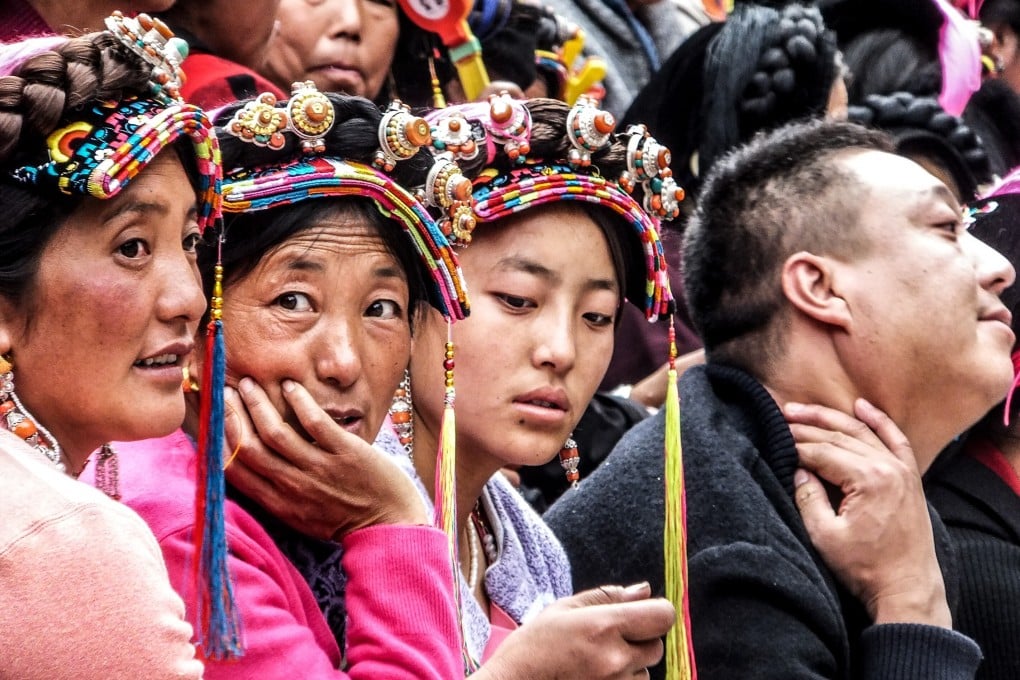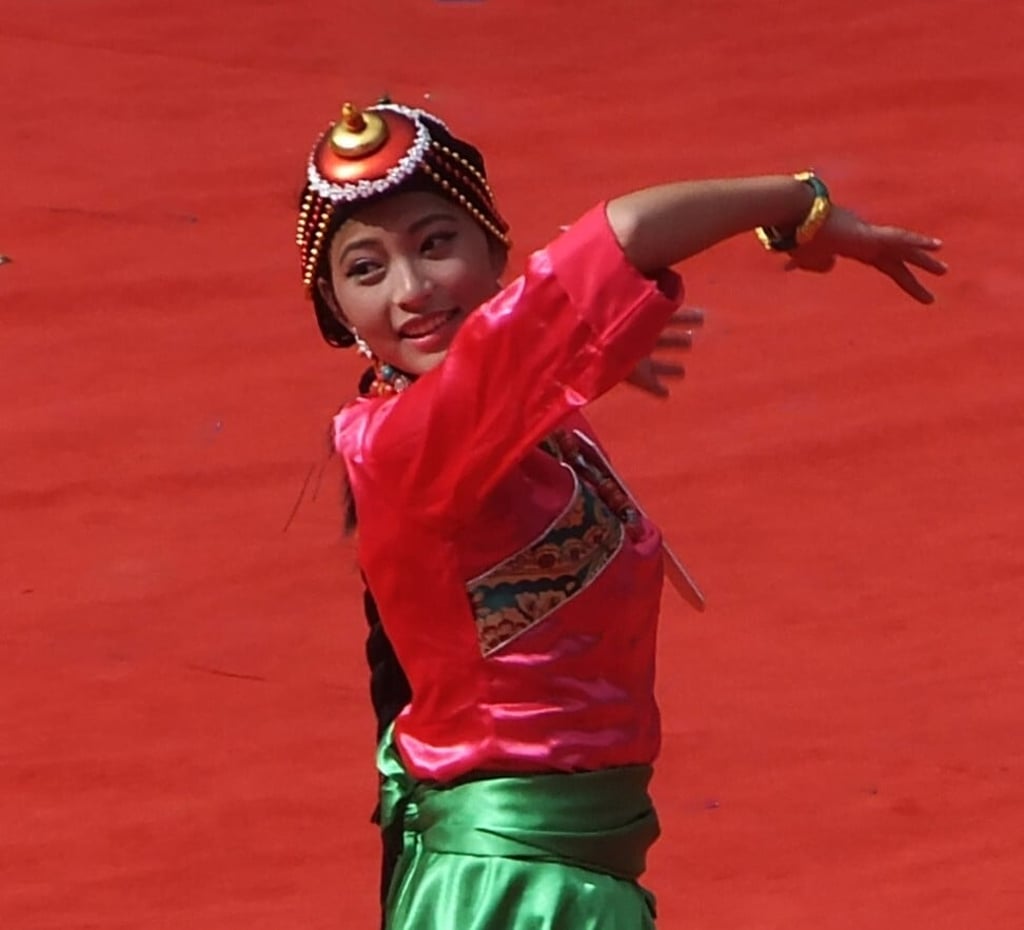Opinion | In China’s lost Queendom, beauty contests and love triangles endure
- A beauty festival for the ages in a mythical region once ruled by women shows off the pageantry of the Tibetan plateau
- The judges noted that the quality was ‘especially good’ this year and they had a ‘tough time’ judging. Teens murmured that this year’s contestants were the worst ever.

Danba also claims to be the centre of a mythical Eastern Queendom, ruled by a line of hereditary queens, where men served merely as footnotes. Today, the area is inhabited by the Qiang people, an ancient tribe distinct from the Tibetans and Hans.
Tapping on her legends, Danba now hosts an annual beauty contest. At its venue, my wife and I found the arena packed with thousands of locals. Hawkers peddled enormous hydrogen-filled balloons, fat beaded necklaces and barrels of instant noodles.
“It’s the biggest day here,” a policeman explained. “Every village nearby nominates a beauty. The final winner gets the Golden Flower. There will be two Silver Flowers and three Pomegranate Flowers. But what a pity – we can’t watch anything. We have to stand guard with our backs facing the beauties.”
The audience had turned up in as much grandeur as the contestants. Women of all ages came wearing black velvety jackets and heavily embroidered skirts, their necks weighed down by loads of jewellery and their thick plaited strands of hair decorated with silver brooches and colourful tassels.

